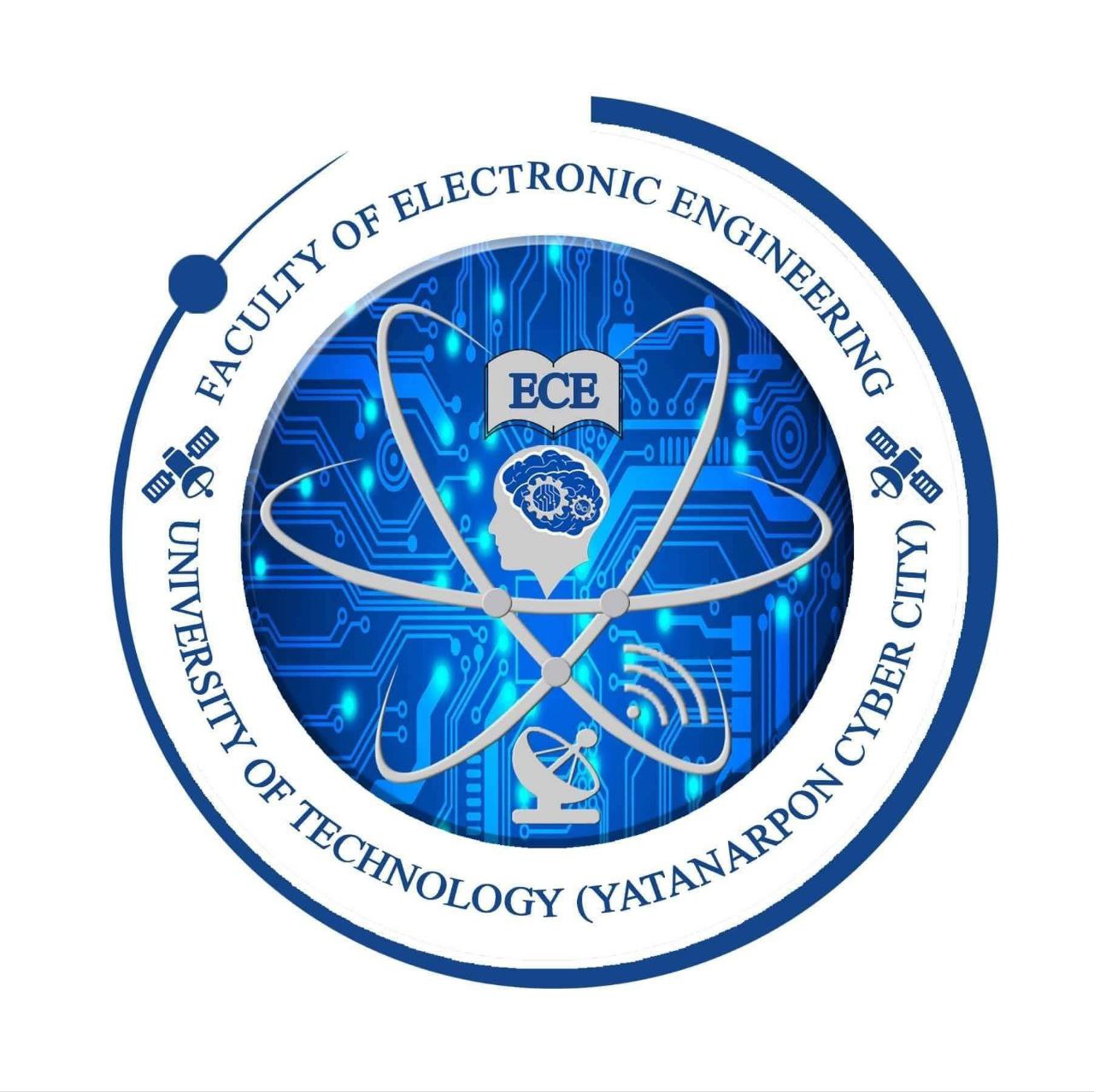
The Faculty of Electronics Engineering (EcE) at the University of Technology (Yatanarpon Cyber City) is an engineering discipline that focuses on the study, design, integration, and testing of electronic systems, devices, communication technologies, and signal processing.

“Let’s innovate for SMART Living!”
The program is designed to provide students with foundational knowledge and advanced expertise in electronics and communication technologies. It aims to enable them to actively participate in designing and developing widely used communication systems and smart systems in various contexts. The curriculum ensures that students acquire the technical skills required in the professional workplace, becoming fully qualified and competent engineers. It also emphasizes the development of critical thinking and problem-solving abilities through research, innovation, and practical application of technology-related challenges. Moreover, students will be trained to face challenges in their specialized field of electronics engineering through enhanced learning and practical training systems. The Electronics and Communication Engineering (EcE) program is intended to equip students to carry out research activities with innovation using the latest technologies, with the key topics of study outlined as follows.
In the Department of Electronics Engineering, Laboratories have been established to allow students to practically apply the theories they have learned and to enhance their technical skills and expertise.
Hover over or tap a skill to see a brief description.
Our Bachelor of Engineering curriculum is designed to prepare you for the real world with these key advantages.
Graduates with a B.E. in Electronics can work in electronics manufacturing plants, consumer electronics factories, telecommunications companies, automation and control system firms, power and energy companies, and other related organizations.